Stories of Consequence
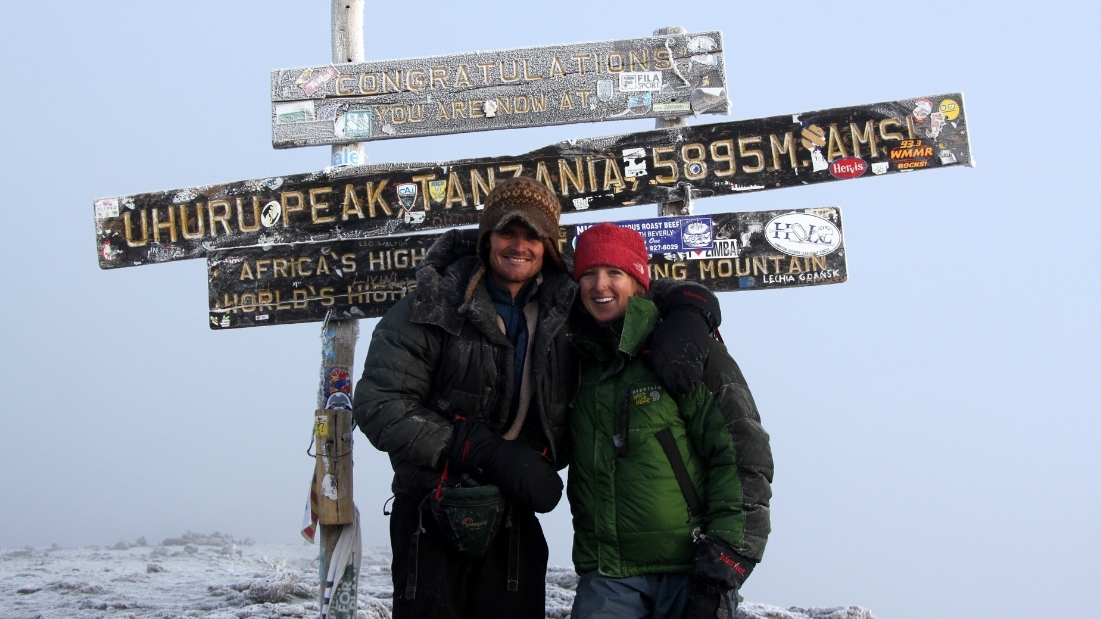
Taking in the 360-degree view at 29,032 feet above sea level, Brandon Chalk ’00 realized the horizon didn’t just wrap straight around him like a stretched string. Instead, at the top of Mount Everest, he noticed a gentle bend. The curvature of the world was revealing itself.
“Seeing the curvature of the Earth, I just sort of couldn't believe it,” Chalk said. “I had these plans [to hike Mount Everest]. It was always a dream – I’m living it.’”
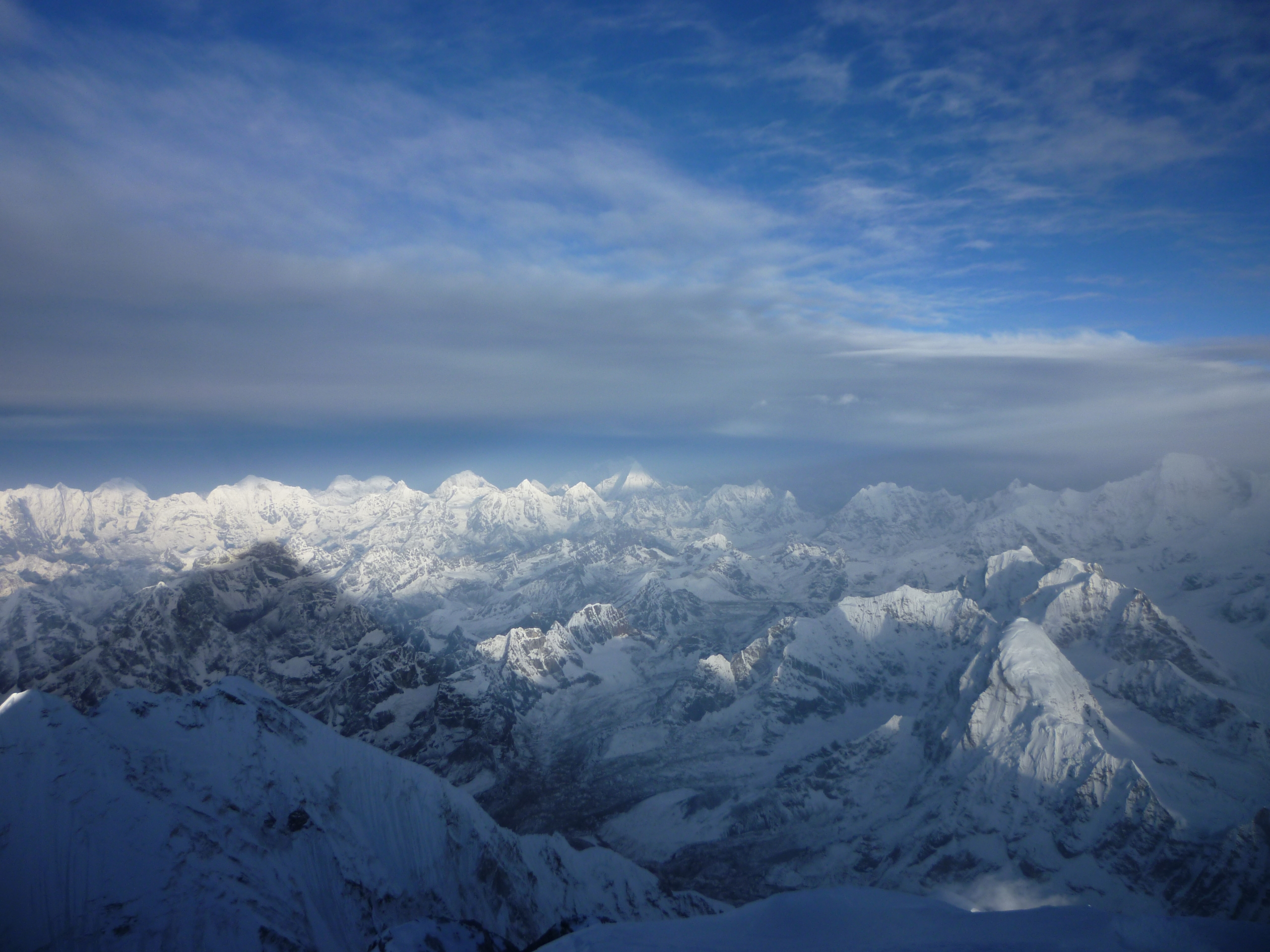
Chalk and his wife, Kristine, had already climbed Mount McKinley (Alaska) and Mount Elbrus (Russia) together – checking off two of the Seven Summits, the highest peaks on each continent – with Chalk hiking Mount Aconcagua (Argentina) before they met. And in the months following their wedding in October 2009, they prepared for the big one – the summit that would make their goal of climbing all seven tangible.
“It seemed like Everest would be the biggest hurdle, so if we could climb Mount Everest, then it would be a reality; maybe we can continue on and climb them all,” Chalk said. “Because if you can't climb Everest, why pursue the rest of them?”

On May 25, 2010, the Chalks became the youngest American couple to summit Mount Everest together. Looking back, Chalk doesn’t ramble on about the grand revelations he pondered with the world below him. Instead, he admits that at the time, sleep deprived and worried about the descent, complete awareness of where he stood didn’t fully register. For two months, he and Kristine had battled the mountain unguided. At one point he got food poisoning at a tea house. They only slept in hour increments since reaching high camp because of the lack of oxygen. But still, he tried to savor the moment as best he could, removing his oxygen mask for a few minutes to breathe in the air.
“There wasn't any kind of smell – no taste,” he said. “It was just like, ‘This is breathing air at 29,000 feet and actually standing on ground,’ because usually you're in a plane that high and breathing recycled plane air. It was refreshing.”
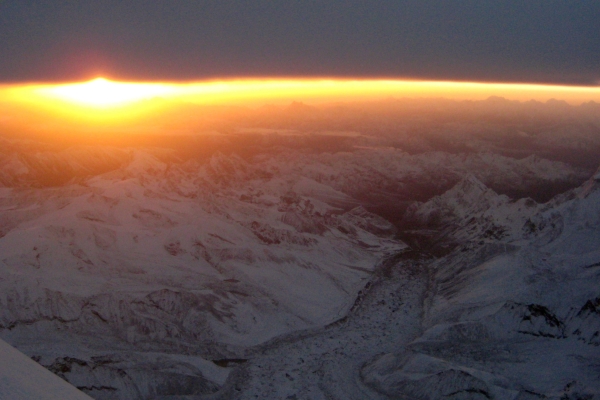
And then, with a satellite phone, he called his dad.
“It was pretty surreal to be calling my dad from the top of Mount Everest,” he said. “He was the guy who got me into this.”
The Mountains Are Calling
For a week or two every summer, Chalk and his dad, John, would immerse themselves in hiking the lower Grand Tetons. A mountain hunter, John Chalk hoped his son would develop a similar love of the outdoors, and in Jackson Hole, Wyoming, it started to take shape.
“He and I would just hike constantly out in the Tetons and backpack and do big loops,” said Chalk. “He really was the one who introduced me to outdoors, to the bigger mountains.”
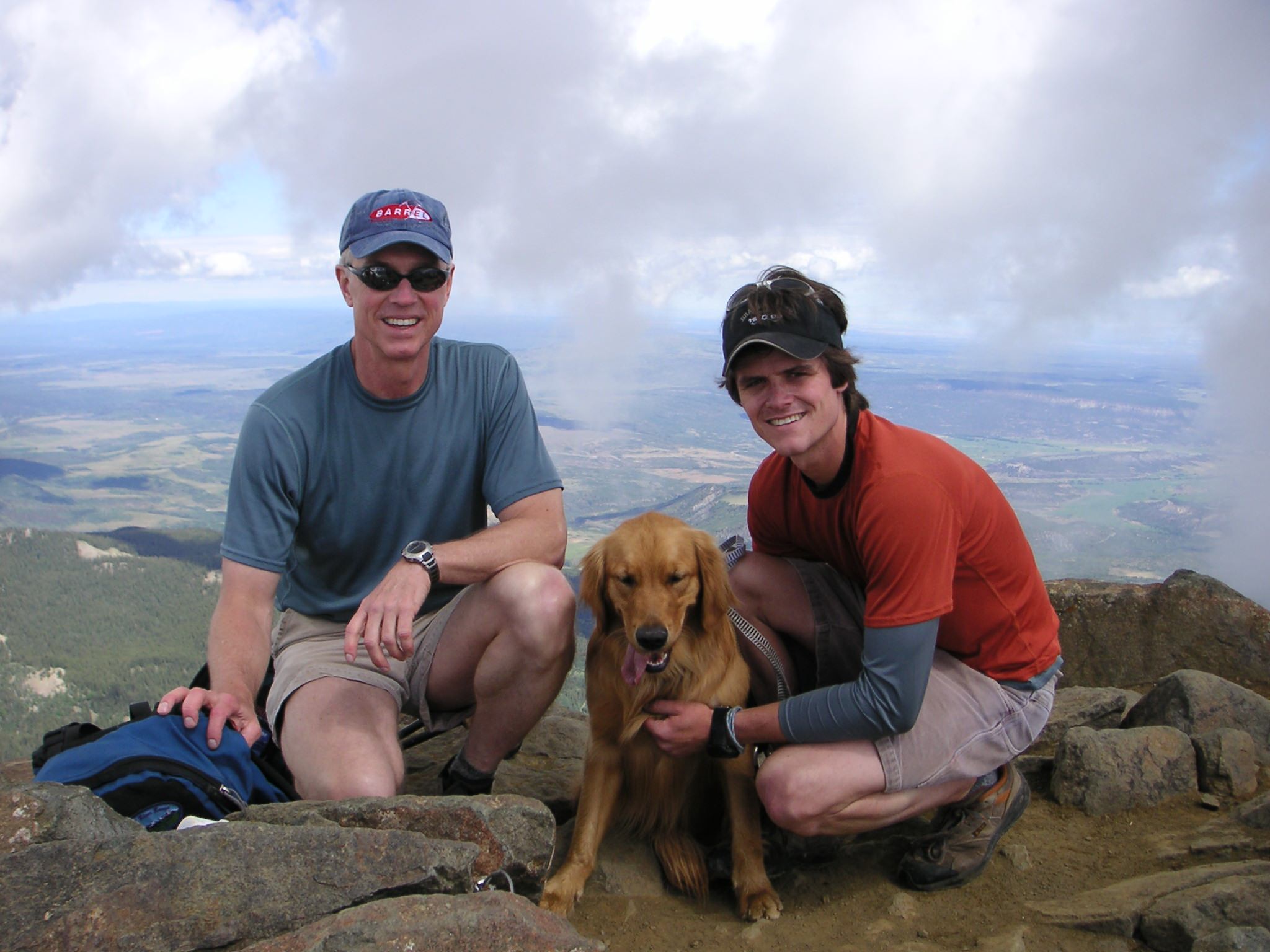
By high school, Chalk discovered rock-climbing in gyms popping up in his hometown of Charlotte, North Carolina, and for his 16th birthday, he asked for a guided climb of the Grand Teton, the highest mountain in the Teton Range. John Chalk signed up with son, as did another father-son duo.
“We started at the climbing gym in Charlotte, and we went out West,” said Chalk. “I think my dad obviously liked being on top of mountains, but I think he more liked it because I had a huge draw to that sense of accomplishment and trying to do something hard.”
John Chalk suffered from altitude sickness, and the other father sustained an injury, so both dads stayed at camp while the teenagers climbed the Grand. And that summit triggered a lifelong passion for Chalk.
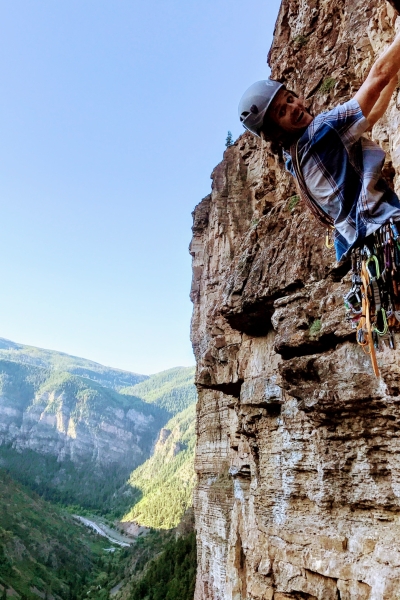
“It was life-changing,” he said. “I was like, oh my god this is the best thing ever.”
The Blue Ridge Mountains called Chalk to Washington and Lee University, where he double majored in mathematics and physics-engineering. Each summer he’d work half the break before spending the other half backpacking all throughout the American West – spending one summer with his dad, sleeping in the back of a pickup truck and climbing every Colorado 14er they could (mountains with a peak elevation of at least 14,000 feet). Before his graduation from W&L, Chalk was accepted to the Georgia Tech mechanical engineering graduate program, which he deferred for a year to live and work in Telluride, Colorado, with fellow Pi Kappa Alpha fraternity brothers Scott Hook ’00, Andrew Stewart ’00, Jesup Szatkowski ’00 and Chris Zarek ’99 (also taking the time to climb more 14ers and Pacific Northwest volcanoes with Josh Beckham ’99 and Zarek). After completing his master’s degree in mechanical engineering in 2002, he migrated back to Colorado to work for an engineering firm in the Vail Valley.
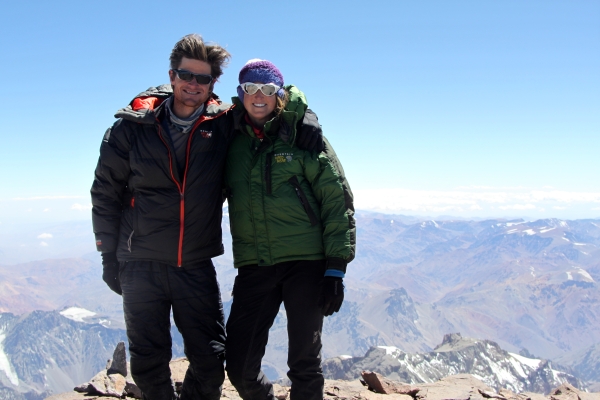
For 18 years, he worked as a professional engineer for Beaudin Ganze Consulting Engineers before moving to ST+B Engineering in 2021. He works alongside architects to design complex mechanical systems – such as heating and cooling systems and geothermal underground systems – in high-end custom homes to be efficient and sustainable. But early on in his professional career, Chalk decided to be guided less by money and more by crafting a life rich in other ways.
“A lot of people are hung up on money and making a lot of money,” he said. “I just want to live where I want to live and enjoy my life. That’s more important than making more money.”
A Rich Life
In the summer of 2011, Brandon and Kristine organized a trip with his fraternity brothers and their significant others to summit Mount Kilimanjaro (Tanzania). With dear friends, perhaps not as regularly seasoned to the mountains, the couple checked off their fourth Seven Summit together. Each year, they tackled another: Mount Kosciuszko (Australia) in 2012 and Aconcagua in 2013.
And they would bring their experiences back home with them by giving presentations to local grade school kids in Colorado and Charlotte.
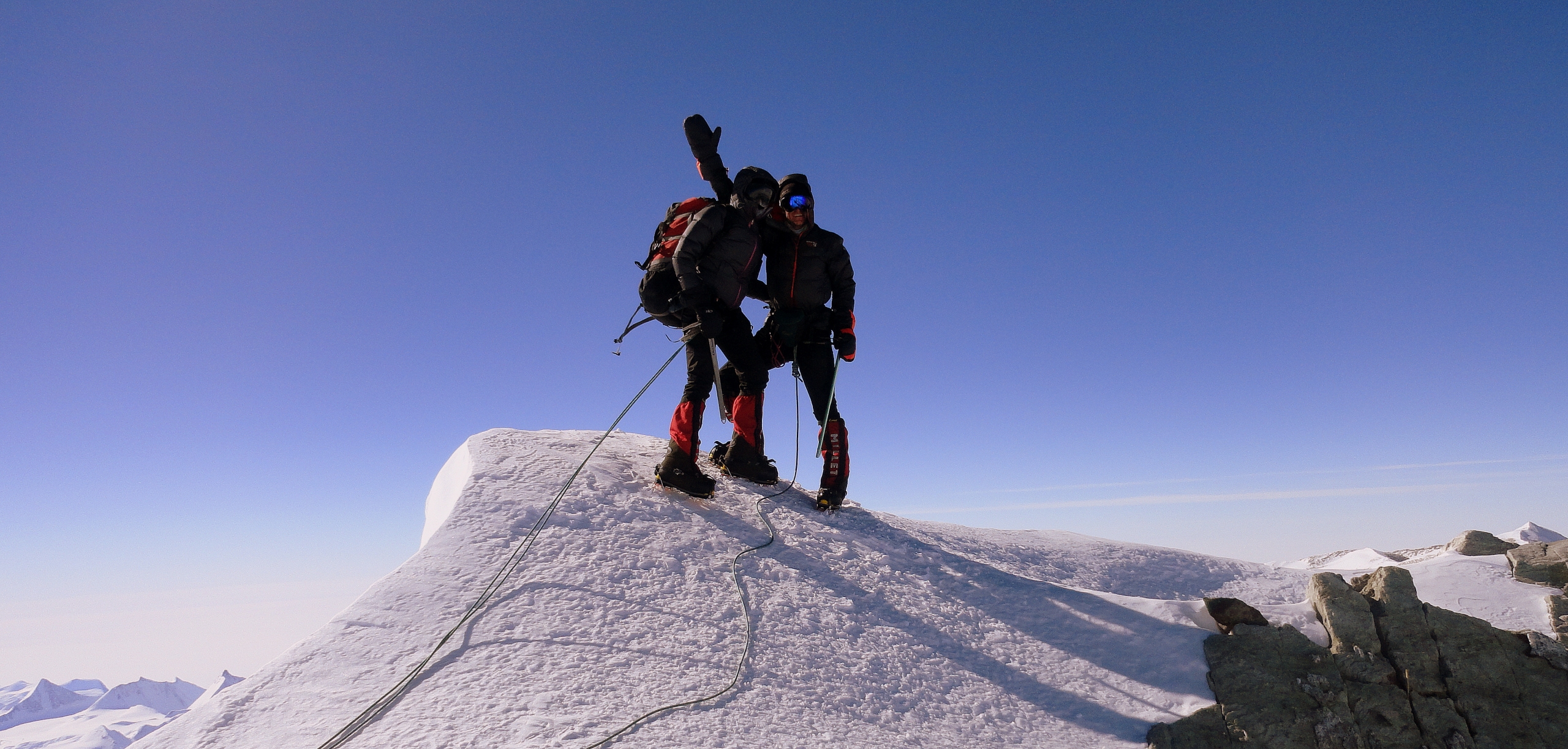
“I think the most impactful thing was doing it for all these elementary school kids and middle school kids and public school systems out here,” Chalk said. “They were just in awe. If you put your mind to something – and doesn't have to be this, but anything – maybe you can make it work.”
On Christmas Eve 2013, the Chalks climbed Mount Vinson, bracing against the minus 60-degree windchill from the east, 700 miles inland in Antarctica. They toasted with champagne back at base camp and celebrated the following days skiing and sledding in the mountain’s shadow. If Chalk could do one of the Seven Summits again, he’d choose Vinson.
“Just being in a place where it's so remote – literally, there are 300 people on the whole continent – it’s sort of freaky,” he said. “You're so far out there, and you're so far away from anything in just the pristine landscape, looking out over peaks that have never been climbed or skied or anything. There are still those kind of places on Earth.”
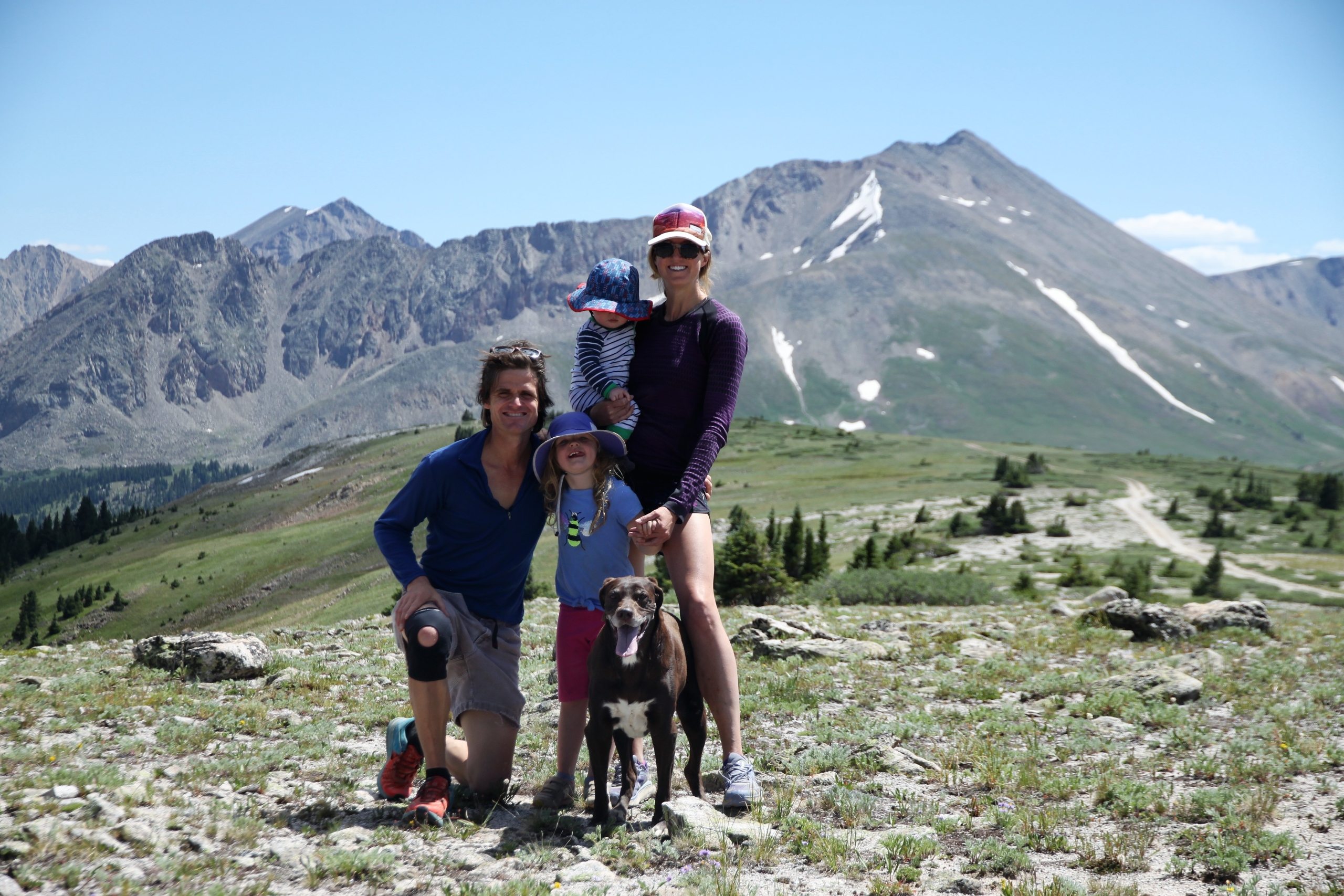
The Chalks’ first child, Sawyer, was born in October 2014, and a few years later her brother, Thatcher, joined. As a family of four, the Chalks’ relationship to the mountains has changed. Chalk no longer makes lists of all the peaks he must climb. Instead, he simply savors the outdoors in any form he can – whether it be trail running, rock climbing, skiing down a mountain with Sawyer or taking Thatcher on a two-mile backpack hike.
“I'm able to enjoy being out in the wilderness more,” he said. “So many people I know around here just have lists, like, ‘Oh, I’ve got to climb all these mountains this year.’ I'm done with lists. I've done my list. I don't care what I do outside, just as long as I'm outside.”
Celebrating Home
With the 25th anniversary of his graduation from Washington and Lee this year, Chalk rented a house for Alumni Weekend on May 1-4 so he and all his friends can celebrate the milestone. In Chalk’s eyes, the community that W&L created and continues to provide is worth commemorating.
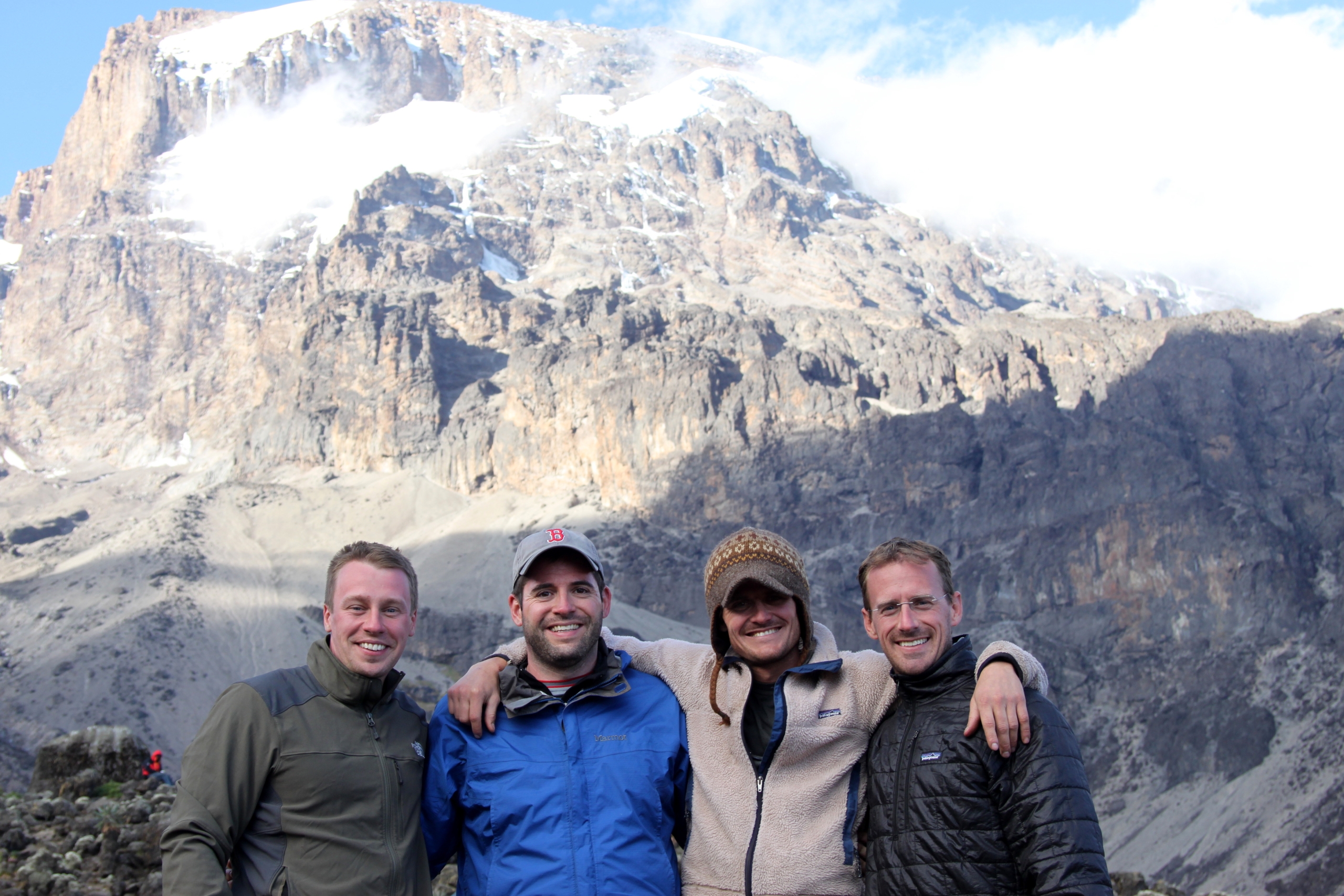
“It's the tight-knit community,” he said. “It's small, and it's like family. It’s comforting. It’s not like I'm going back to some monster university and city. I want to come back to where I know a lot of people and it's familiar ground. I have a lot of friends who went to huge universities that say, ‘I didn't want to go back. I don't know anyone; I don't know anything about it anymore.’ But I like being in the know and having it as a place where you had some of your best years. It was a home for four years – you like to go back home.”